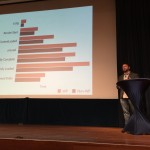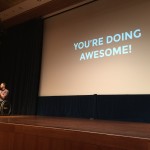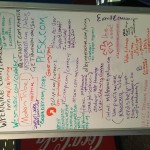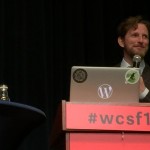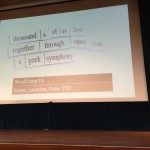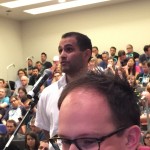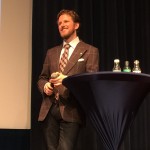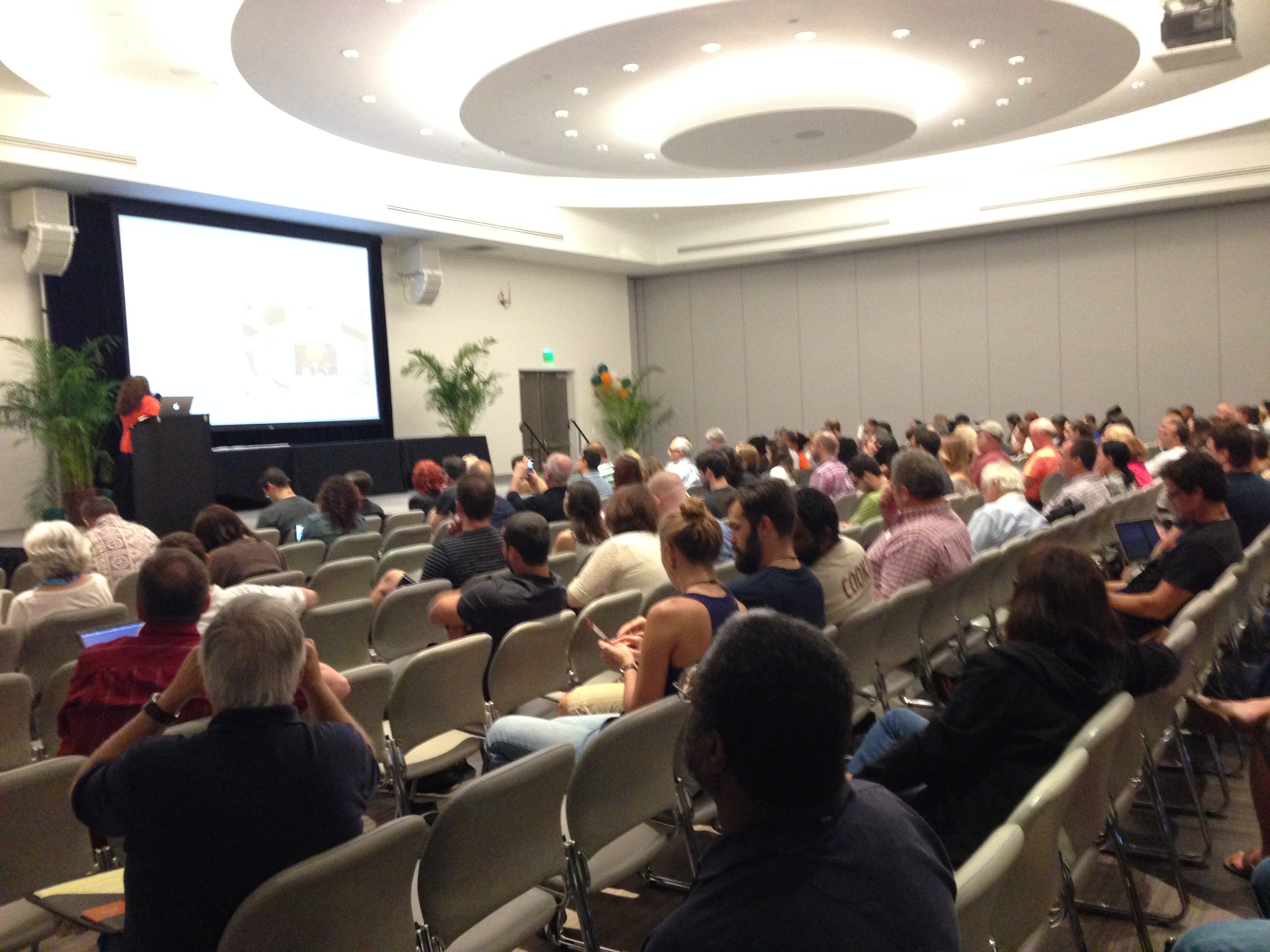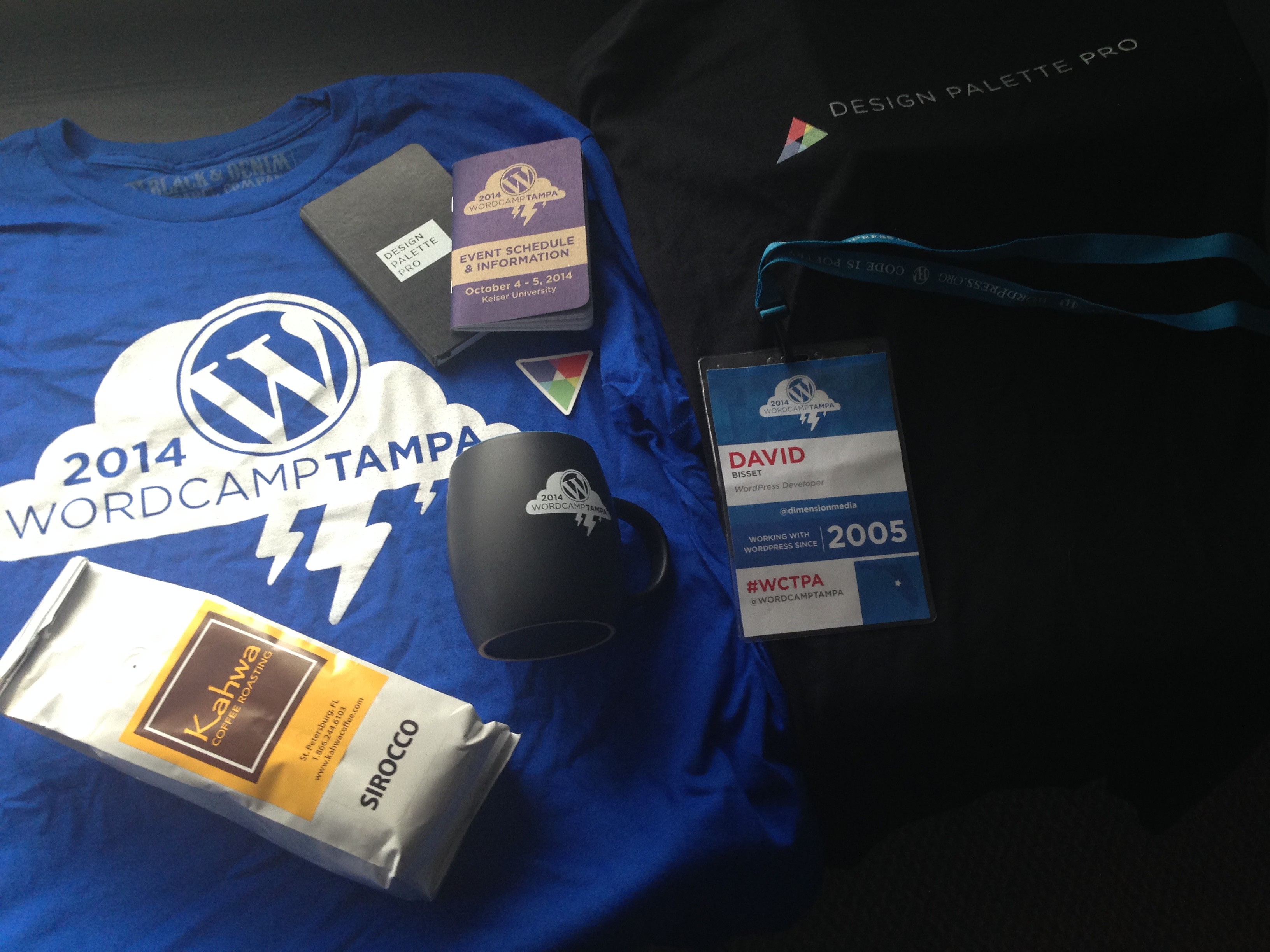As WordCamp San Francisco breaks over the horizon, there have been some re-mentions of how to get the most of it and references to other similar helpful posts (here’s a nice collection). Social Media obviously plays a big part at a tech conference like this. Everyone is going to rightful share their thoughts, experiences, and good times. If you are going to be physically at the conference, you have the Yoda-like wisdom of “put down the laptop, meet people face to face”. Great advice, but realistically many will want to share their experiences via Twitter, Facebook, and Ello (ha! just kidding).
There’s a balance involved. I don’t believe in “leaving your laptop” or “free yourself from your tech” (and granted this might work for some people)… BUT I also don’t believe you should be tweeting everything either, especially if you are missing from the larger experience. Once again, balance – am i right? Here’s a few tips that I’ve learned myself that I thought I was pass on:
Don’t overload.
Unless you are a media source, focus should be sharing points and notes important to you. If you use a physical notebook or Google doc to keep notes, that’s a good thing. I personally use Twitter a bit as my notes. The primary benefit is for me (hence why I don’t worry or care about if someone unfollows, blocks, bans, etc. In fact, I don’t understand how I have more than a few followers when I do “live tweet” conferences. I would think people wouldn’t want that in their stream constantly).
So don’t try to cover all the points of a speaker, or you risk missing information. Slides and videos are available afterwards, and you don’t want to be stressed out typing and not paying at least some attention. Tweet like you would taking notes for a class – keep a balance.
Don’t “hashtag spam” a conference.
Just don’t. If you are an actual sponsor, then checking with the conference organizers first is a good idea. Take it from a conference organizer, promoting discounts, products, services (whether you’re at the conference or not) with the official hashtag is bad form.
Don’t be a disruption.
Using a laptop can sometimes be distracting, especially if it’s a large laptop you are balancing in your lap and you’re a loud typer. Be aware of the environment you’re in. If you think you “stick out” then try to keep a low profile. You shouldn’t be unnecessarily distracting anyone in the audience or the speaker. This is such a common and “not realize you are attracting a little attention” thing, that I can easily see how this results in a “don’t bring your laptop” suggestion. Sometimes switching to a mobile device works better, like a phone in your lap.
You have every right to have an electronic device at a session (unless the conference rules say otherwise) but it’s important to be discreet. If you feel like that’s a challenge, sit in a location in the room where that would be easier (like in the back or off to the side).
On a similar note, make sure your mobile device or laptop sound is muted. Sometimes I shut off the vibrate on my phone if the room is particularly quiet.
Know When To Listen
While you have a right to use devices, it’s still important to use a little observational sense to know when to put away the laptop and devices. For me, Matt’s “State of the Word” talks at WordCamp San Francisco are special times for me to keep things to a minimum and at least try to enjoy being there in person for the information he delivers.
Be Physically Social
Don’t forget to by physically social, to whatever degree you can. Keep notes and taking pictures is great, but likely you are attending a conference that is costing you time and money. Memories and “feelings” of a conference last longer than tweets, documents, and photos. And in the end, they are more important.
Balance is the key. See you in San Fran.













